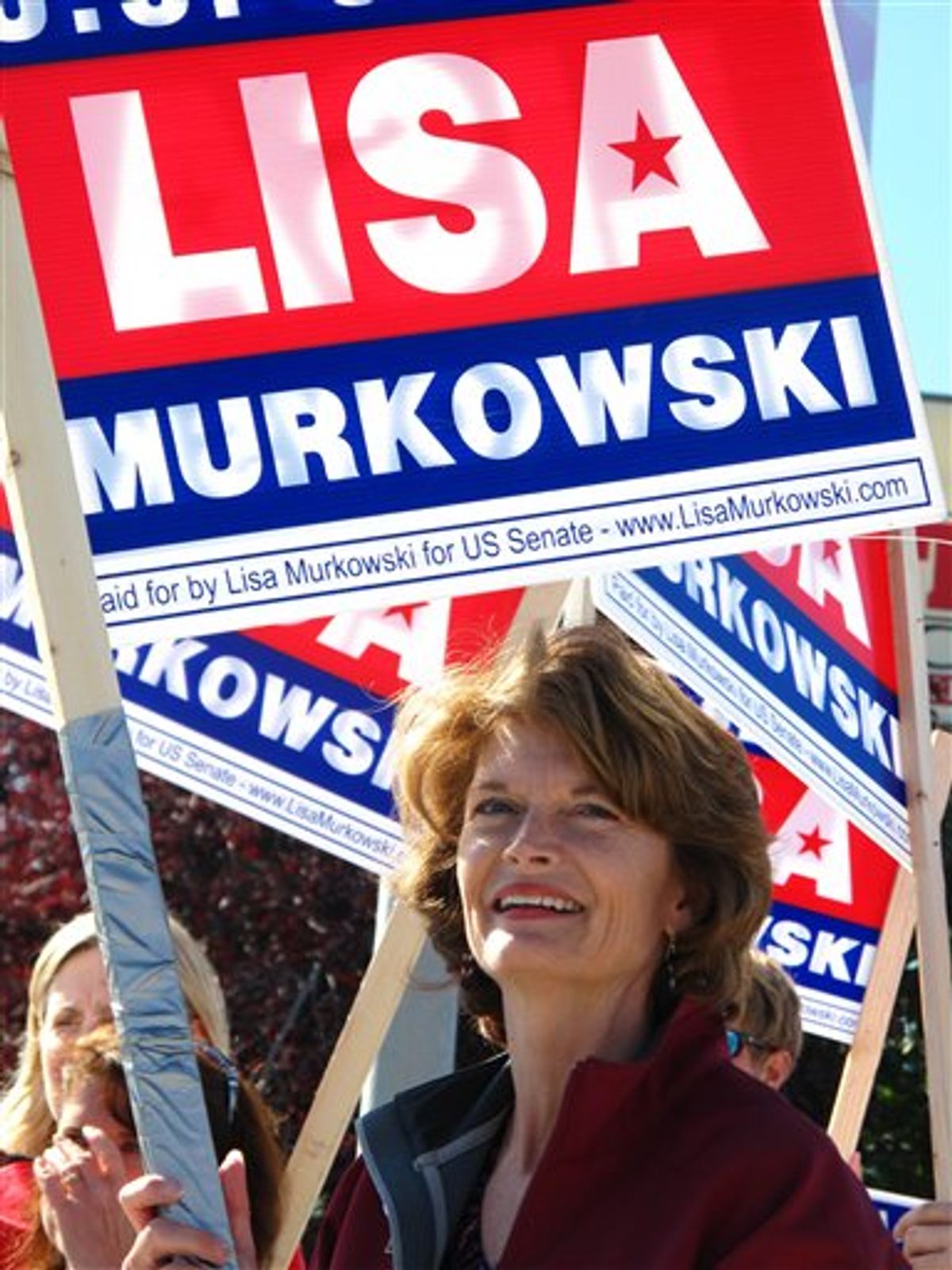Whatever suspense there was is now gone. After a day of absentee ballot-counting failed to significantly dent Joe Miller's lead, incumbent Lisa Murkowski formally conceded the Alaska GOP Senate primary on Wednesday night.
With her decision, Murkowski is now seemingly out of options. It's too late to mount an independent bid for the fall and the Libertarian Party, which has its own ballot line, has publicly rejected the idea of switching out its nominee in favor of Murkowski. The only other way Murkowski could retain her seat now would be through a write-in campaign, but that's not going to happen.
Murkowski's relatively quick concession (by the standards of Alaska, where it takes much longer to tally votes), can be viewed as a pragmatic move. Dragging out the process further with litigation and recount demands was unlikely to overturn the result -- but it would have allowed Miller to further poison her reputation with the GOP base by continuing to accuse Murkowski of trying to "pull an Al Franken." And that, in turn, would have made it far more difficult for the 53-year-old Murkowski to mount a comeback bid sometime in the future.
The question now is whether the right-wing Miller's candidacy will give the Democrats an unexpected opportunity for a Senate pick-up this fall. The idea gained some steam with a PPP poll two days ago that showed Miller just eight points ahead of the Democratic nominee, Scott McAdams. But it's hard to believe McAdams will put up much of a fight. Alaska is simply too conservative -- and the climate of 2010 is simply too hostile to Democrats, especially in contests for federal office.
The only Democrats to score major wins in the state in the recent past both benefited from extenuating cirumstances: Tony Knowles eked into the governorship in 1994 when a right-wing independent candidate split the GOP vote, and Mark Begich edged out Ted Stevens in 2008 thanks primarily to Stevens' conviction on federal corruption charges days before the election (it also helped Begich that the national climate was unusually favorable to Democrats in '08). If Murkowski had managed to finagle the Libertarian nod, maybe there'd now be a theoretical victory scenario for McAdams. But in a two-way race in 2010, here's guessing whatever swing voters there are in Alaska break pretty decisively to the candidate without a "D" after his name.

Shares